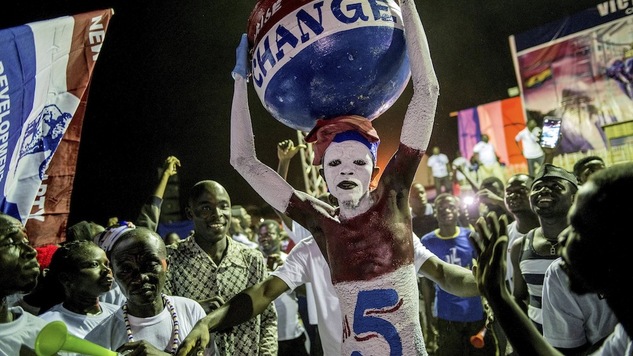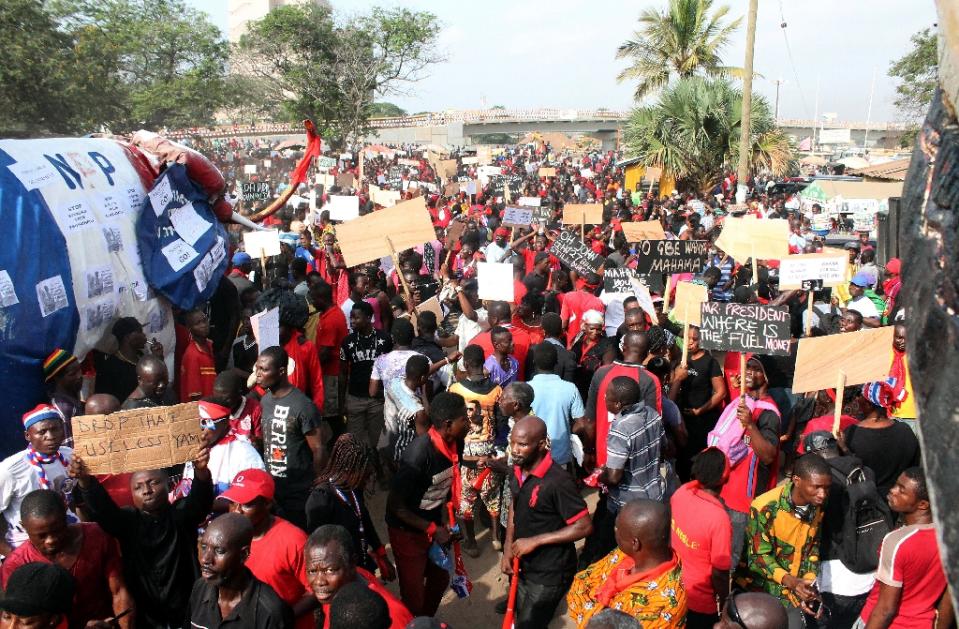
On December 7, Ghanaians go to vote in the country’s seventh general elections. Following the introduction of multiparty politics in the early 1990s, the country has been recognised as a success story on the continent when it comes to democratic credentials. But concerns have emerged regarding the forthcoming poll.
Ghana’s fourth republic has a unique track record for its democratic structures, institutions and practices. After six (largely) credible elections and two peaceful transfers of presidential powers from one party to another, democratic culture seems to have taken root.
After the first multiparty elections organised under civilian rule in 1993, former head of state Jerry John Rawlings held power under the centre-left National Democratic Congress (NDC). In the two election periods that followed, the presidential office was occupied by the liberal-conservative New Patriotic Party (NPP) under John Kufuor.
The closely contested 2008 elections placed the NDC, under Atta Mills’s leadership, back into power. The NDC won the presidency with only a tiny margin at 50.23% in the second round of voting and the NPP peacefully vacated the presidential offices and business as usual commenced.
With only a few thousand votes above the 50% threshold in the first round of voting in the 2012 contest, John Mahama, who had taken over as president following Mills’s death in office, won the election. This time around, however, the opposition cried foul and accused the electoral commission of having tampered with the results. The ensuing court petition challenging the validity of the outcomes kept Ghana in political limbo for months.
The cracks in the system were on display.
What’s at stake?
Against this background, Mahama is vying to take a second elected term in office whereas Nana Akufo-Addo – who ran on the NPP ticket in both 2008 and 2012 – is hoping to become “third time lucky”.
Facing increasing economic and social hardship, including high inflation and increasing taxes and petrol prices, the election campaign now unfolding revolves around issues linked to economic development, unemployment and poverty.
After eight years in power, the NDC stands to be blamed for the current situation. Unsurprisingly, the NPP is building its campaign around the narrative of a state in crisis that has come about as a result of government mismanagement, incompetency and corruption.
Following the controversial decision made by the electoral commission to disqualify 12 presidential candidates, which in turn was overruled by the Supreme Court in three instances, five other candidates will feature on the presidential ballot. The capacity of any of these other five to garner votes might determine whether a second round of voting will be necessary. Under Ghana’s electoral legislation, the presidential candidate is required to win a minimum of 50% plus one vote to access the office. If no candidate meets this requirement in the first round of voting, another round would be organised between the two top candidates.
The future of democracy
The elections will provide a litmus test of Ghana’s ability to conduct credible and peaceful elections. The first matter of concern relates to public trust in the electoral commission, which is responsible for managing the process – from voter registration to election day operations – in an independent and impartial fashion. Although recognised as a highly trustworthy institution for nearly two decades, the debacle that followed the 2012 elections severely undermined its reputation.
Over the past few years, public trust levels fell from 59% to 37%, and only 46% of the voters believe that the forthcoming elections are likely to be free and fair. Even if the commission runs a flawless election, such perceptions can easily be used by the losing parties to undermine the credibility of the outcome.
The second concern is about intimidation, harassment and violence. Although these have featured in previous elections as isolated incidents, this time around it may be different.
Visiting in August this year, the joint high-level mission Economic Community of West African States, the African Union and the United Nations, which aimed to contribute to sustainable democracy in Ghana, “acknowledged the genuine risk of electoral violence”.
Violent riots and protests not directly linked to the elections have increased over the past few years – from 24 in 2013 to 63 in 2015.
More specifically linked to the elections, however, the emergence of politically affiliated vigilante groups that disrupt electoral activities to protect the interests of their “mother party” adds to the situation.
Last year, by-elections organised in the eastern parts of the country saw the rise of such groups associated with the two leading parties – the Azorka Boys (NDC) and the Bolga Bulldogs (NPP). Although the government has repeatedly underscored its intention to “deal decisively with election trouble-makers” and the police have deemed “macho-men” illegal and unconstitutional, security threats remain real to voters and electoral contestants alike and is charging the electoral environment.
Tough Test
With less than a month to go to until election day, electoral campaigns are in full vigour and preparations for the elections are progressing. The elections might be the toughest test of Ghana’s democratic progress. But in about two decades the country has developed rigorous institutions capable of protecting the credibility of the elections.
Experience tells us that political parties are willing to use formal channels for addressing electoral grievances and to respect the rule of law. The electoral commission has a good record of accomplishment and, notwithstanding the ongoing court cases, its new chair, Charlotte Osei, has been praised by her peers for doing a good job in a difficult environment.
Ghana has a vibrant civil society that has played a constructive part in promoting the democratic project, including the enhancement of the integrity of elections with civic/voter education and election observation.
These developments show that democracy remains a continuous battle. Ghana is certainly not alone. All across the continent, democratic architectures – built on laws, institutions and processes – are repeatedly challenged. Ultimately, it is the degree to which the structures remain capable of advancing that will determine whether democracy can remain the only game in town.
Mette Bakken is a programme officer at the International Institute for Democracy and Electoral Assistance and is based at its regional office in Addis Ababa. Mathias Houpke is a programme manager for the Political Governance Programme at the Open Society Initiative for West Africa based in Dakar

